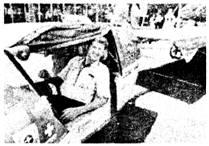| Visit the Skywalk at Grand Canyon West Today! For Booking Call: 1-866-944-7263 Package Fee: $289 Per Adult: $274 Per Child. All Fee’s Included. NO Hidden Cost. Book Now! |
Experience the newly opened Grand Canyon(大峡谷) West Skywalk in Colorado. Departing from Grand Canyon’s South Rim by Airplane to Grand Canyon’s West Rim, you will land and take a ground tour to the Skywalk! Walk on air for 70 feet over the edge of Grand Canyon West.
This Skywalk has been open since March 28, 2007. Daily visitorship to the Skywalk has been over 4,000 people. Please be patient to enjoy your moment on the Skywalk.
After you have experienced the one and only Grand Canyon Skywalk Glass Bridge, you will return to the
Tour Itinerary(行程)
Tour Duration | 5.7 Hours | The Grand Canyon Adventure Skywalk |
Flight from Grand Canyon South Rim to Grand Canyon West | 1 Hour | Experience a bird’s-eye view of the Grand Canyon as you make your way to Grand Canyon West. |
Light Lunch at Guano Point at Grand Canyon West | 2 Hours | You’ll be taken by bus to Guano Point with breathtaking views of the Western part of the Grand Canyon where the Calorado River makes its way into |
Walk on the World Famous Skywalk | 1.5 Hours | Finally you’ll board your bus to Eagle Point, home of the Grand Canyon Skywalk. Now it is time for you to walk on air for 70 feet over the Grand Canyon. |
Flight Back to Grand Canyon South Rim | 1.2 Hours | After time on the Skywalk, you’ll return to the |
50. The package fee does NOT cover the cost of ________.
|
| C. | D. |
51. The Grand Canyon Skywalk Bridge is made of glass because ________.
A. it looks stronger B. it is cheaper to build
C. it looks more beautiful D. it gives you a better view
52. According to the Tour Itinerary, the route is ________.
A. South Rim→Guano Point→West Airport→Eagle Point→West Airport→South Rim
B. South Rim→West Airport→Guano Point→Eagle Point→West Airport→South Rim
C. South Rim→West Airport→Eagle Point→Guano Point→West Airport→South Rim
D. South Rim→West Airport→Eagle Point→West Airport→Guano Point→South Rim
“Imagine you are walking along the road. Suddenly you fall over and all the passers-by burst into laughter. You feel very 16 and think the world is laughing at you. But in fact, five minutes later, they have 17 it ever happened.” The other day when I came across these words in an article, I didn’t agree with the 18 .
The author thinks the best thing to do in this kind of 19 is to pretend nothing has happened, and so avoid 20 trouble.
I admit that we should keep 21 because “Your tears will only remind others of what happened, while your 22 can let them forget it.” But this is far from satisfactory. We should do 23 to make things better.
I used to be a(n) 24 girl and not very good at maths. Our new maths teacher asked me a question and I still remember how I hung my head in 25 when I couldn’t answer it.
“If you don’t know the answer, just tell
Since then, I have become active in maths as 32 as in other subjects. I used to think doing maths exercises was a waste of time. But now, I know 33 I do can make things better. Everyone is the 34 of his own fate.
If we make mistakes, we should take on an active 35 . Laugh, and the world laughs with you; weep, and you weep alone.
16. A. nervous | B. excited | C. afraid | D. embarrassed |
17. A. realized | B. recognized | C. forgotten | D. remembered |
18. A. speaker | B. reader | C. author | D. announcer |
19. A. environment | B. surrounding | C. condition | D. situation |
20. A. ordinary | B. extra | C. common | D. usual |
21. A. confident | B. smart | C. calm | D. strong |
22. A. smile | B. worry | C. courage | D. satisfaction |
23. A. anything | B. something | C. nothing | D. everything, |
24. A. shy | B. energetic | C. happy | D. clever |
25. A. joy | B. pride | C. shame | D. surprise |
26. A. what | B. that | C. when | D. whether |
27. A. forced | B. invited | C. asked | D. pushed |
28. A. bring up | B. put down | C. think about | D. show off |
29. A. obeyed | B. suspected | C. rejected | D. understood |
30. A. expectation | B. disappointment | C. surprise | D. delight |
31. A. hoped | B. knew | C. doubted | D. regretted |
32. A. long | B. far | C. soon | D. well |
33. A.. whoever | B. whenever | C. wherever | D. whatever |
34.i A. architect | B. owner | C. host | D. inspector |
35. A. position | B. attitude | C. value | D. response |

 A.
A. B.
B. Swiss national Louis Palmer realized a childhood dream when he set off from his home country on July 3, 2007 traveling over desert, city and sea in 17 countries by a “solar taxi” to reach UN Climate Change Conference in
Swiss national Louis Palmer realized a childhood dream when he set off from his home country on July 3, 2007 traveling over desert, city and sea in 17 countries by a “solar taxi” to reach UN Climate Change Conference in